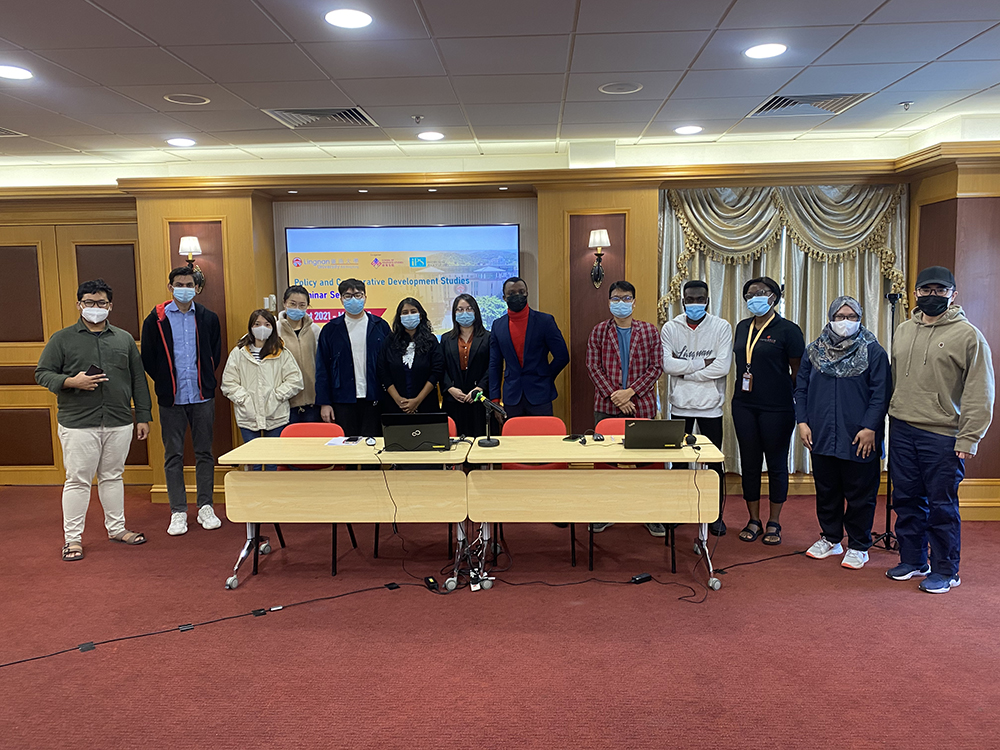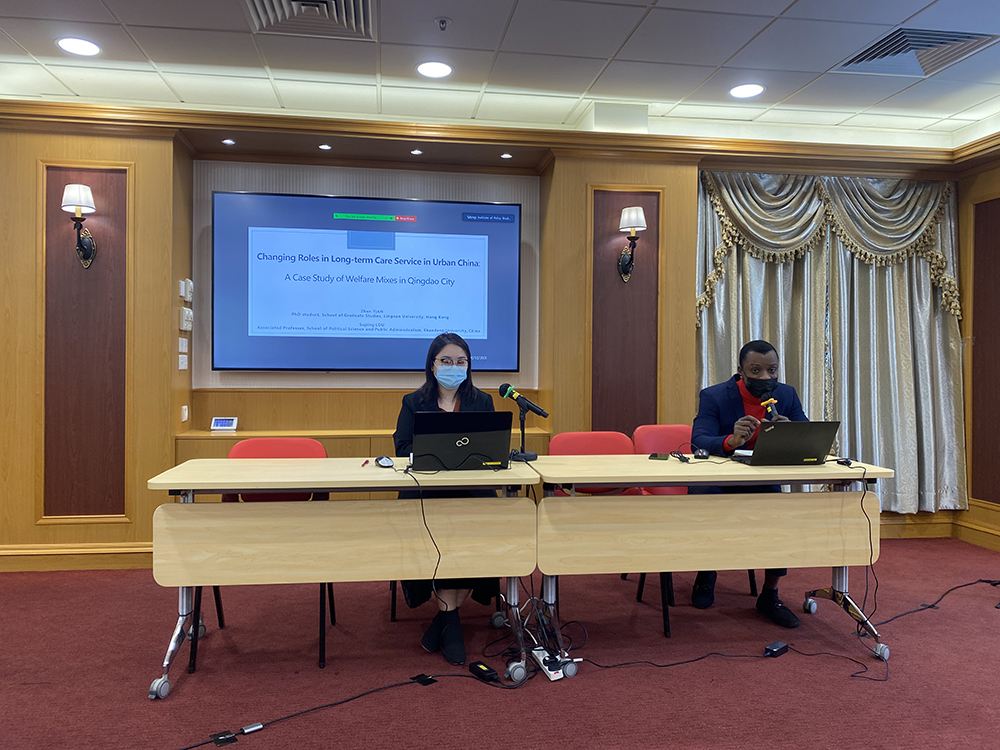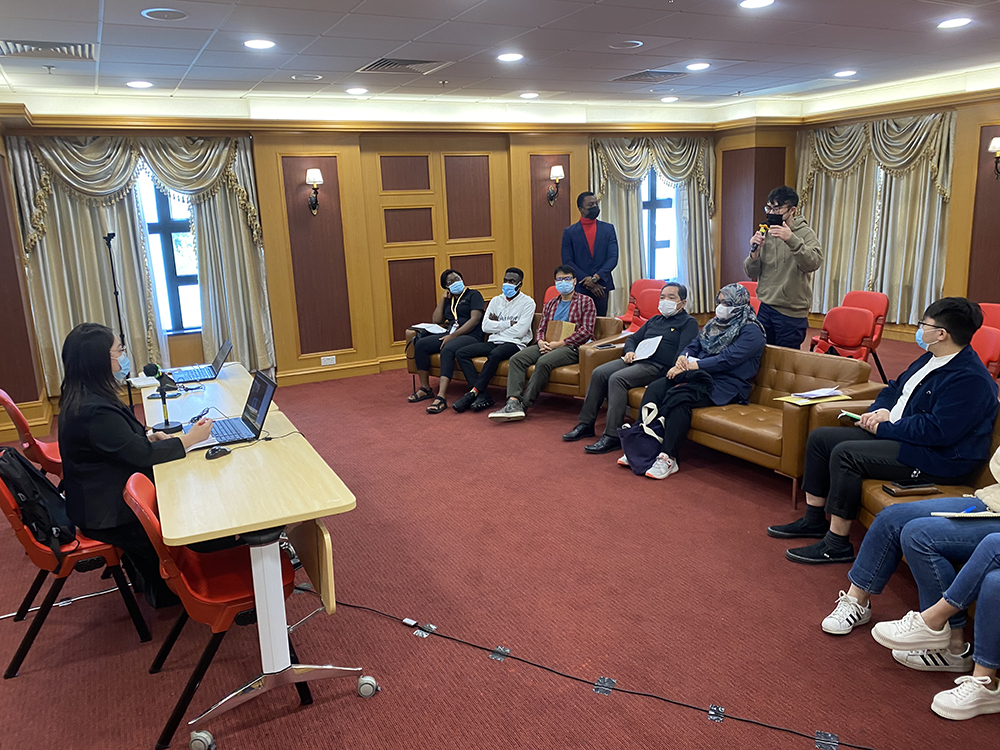
The fourth Policy and Comparative Development Studies Seminar Series was held on 2 December 2021. In this session, Ms. Tian Zhen presented her ongoing research on welfare relations in long-term care services in urban China, which she co-authored with Mrs. Lou Suping, an associated professor from Shandong University.
With its challenges to welfare expenditure, population ageing has become a serious issue that has transformed the welfare system globally. For both service finance and provision, the health and social service sector encompasses a varied network of actors, including families and private, public, and non-profit organizations. Research in Europe and East Asia has indicated that shifting interactions between welfare entities as a result of population ageing has prompted new practice where the welfare mix theory could be applied and tested. China as a representative nation in welfare studies contributes to both Asian and global research. With the pilot practice of social long-term care insurance, China uses welfare policies to construct the required welfare relations with regard to the welfare system reform, which offers the perfect field for analyzing China's welfare relations across various entities.
This research intends to fill in the gap by analyzing how welfare entities participate in long-term care insurance programme at the city level, as well as the influence of the transition of China’s welfare system. To demonstrate the research question, an institutional historicism perspective is used to explore the interaction and role changes of various welfare entities at three levels: macro-level policy values, mezzo-level welfare eligibility and service, and three micro-levels of welfare provision. This study uses qualitative methodology such as document reviews and in-depth interviews, and adopts a triangulation method for data collection, coding and analysis to assure the validity of the results and conclusions.
According to their findings, Qingdao city has adopted a welfare mix arrangement that includes a socially-financed, government-regulated, and private-delivered mode in the field of elderly long-term care service. It further explains how local governments have increasingly adopted a"softer governance" system to transform the roles of professions, organizations, service users, and the state, and how they have created new systems that combine market elements, managerialism, and network-based governance, as well as the ideal development path during national welfare value transitions.




